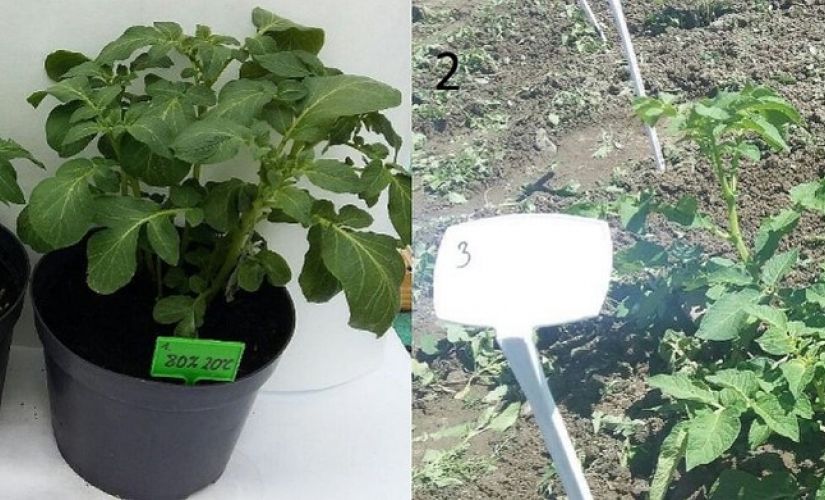Under the direction of Professor Beata Gutarowska, research is conducted as part of a project under the Rural Development Programme of the Agency for Restructuring and Modernisation of Agriculture, entitled "Development of strategies to prevent phytosanitary diseases. Development of strategies to prevent the growth of seed potato phytopathogens on the basis of ecological biotechnological solutions and a new storage method".
In order to inhibit the growth of potato phytopathogens, dozens of strains of lactic acid bacteria of the genus Lactobacillus and yeast strains of the genus Metschnikowia were tested. The activity of monocultures of tested microorganisms and synergism of action in mixed populations were studied. The research also included plant extracts with broad antimicrobial activity against potato phytopathogens. Many months of intensive work in the laboratory were successfully completed.
At the same time, the scientists aim to develop the most favourable conditions for seed potato storage in cooperation with the Institute of Horticulture in Skierniewice.
The project will result in an ecological biopreparation for seed potato seed treatment, fully characterised in terms of species composition, chemical composition and activity against potato phytopathogens. In turn, the prototype of the cold chamber will be a ready-made solution especially for small producers, but in the future it may become the basis of a project dedicated to farms involved in the large-scale production of seed potatoes.

